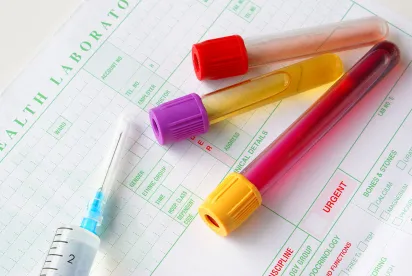On June 13, 2022, the Ninth Circuit Court of Appeals held in Johnson v. WinCo Foods Holdings, Inc, et al. that class members who were not yet employed by WinCo were not entitled to compensation for the time required to take a pre-employment drug test, nor was WinCo required to cover the travel expenses associated with undergoing the test.
Facts of WinCo
Plaintiff Alfred Johnson represented a class of successful applicants who received offers of employment from WinCo. As part of the post-offer process, applicants were notified that they had to take a mandatory drug test. If the applicant agreed to the drug test, WinCo instructed applicants to report to a testing location. WinCo paid the drug testing fee, but did not compensate for the travel expenses and time required to undergo the testing.
Johnson argued that Plaintiffs should have been compensated for the time and expenses of taking a drug test as successful applicants. Plaintiffs contended because the tests were administered under the control of WinCo, Plaintiffs must be categorized as employees (pursuant to California’s “control test,” which determines whether an employment relationship exists). This test examines the way an individual exercises control over a specific task and whether it indicates an employment relationship.
Plaintiffs also argued, in the alternative, that the class members were employees under a contract theory. Specifically, they contended that passing a drug test was a “condition subsequent” to their hiring, pursuant to California Civil Code section 1438. This meant that a contract for employment was formed before the drug test was taken and, in the event the employee failed the drug test, WinCo could terminate their employment.
Holding of WinCo
The Ninth Circuit rejected both of Plaintiffs’ arguments. First, the Court rejected the control test and determined it was inapplicable here, based mainly on the reasoning that drug testing was a way to secure employment rather than a responsibility for those already employed. The panel explained that even though WinCo exercised control over the time and location of the drug test, because the class members were not actually performing work for WinCo when undergoing this drug test, they were not yet employees. The Court likened the act of taking this drug testing to an interview or pre-employment physical examination, explaining that it was an activity to secure a position, not a requirement for those already employed.
Second, the Ninth Circuit held that there was no condition subsequent because Plaintiffs were not hired until they established they were qualified (i.e. passed a drug test). In this case, there was no written contract (only a verbal offer), and the drug test was a condition precedent. The Court stated that class members who accepted such offers must have known that they were accepting an employment offer contingent on a successful drug test. Because the class members did not become employees until they satisfied the condition of passing the drug test, they were not entitled to compensation for their time taking the test.
Lastly, the Ninth Circuit stated that because California law is clear on the subject, there was no need for it to certify any questions to the California Supreme Court. This decision further builds on prior case law holding that California employers do not have to compensate applicants for pre-employment activities, such as interviews, drug tests, and physical examinations.
Please note, this case is limited to pre-employment drug testing and does not discuss drug testing for current employees. To ensure compliance with California law, employers should make clear that any employment offer they extend is contingent upon passing a pre-employment drug test. As always, employers are encouraged to contact experienced employment counsel to ensure compliance with California’s wage and hour laws.



 />i
/>i
